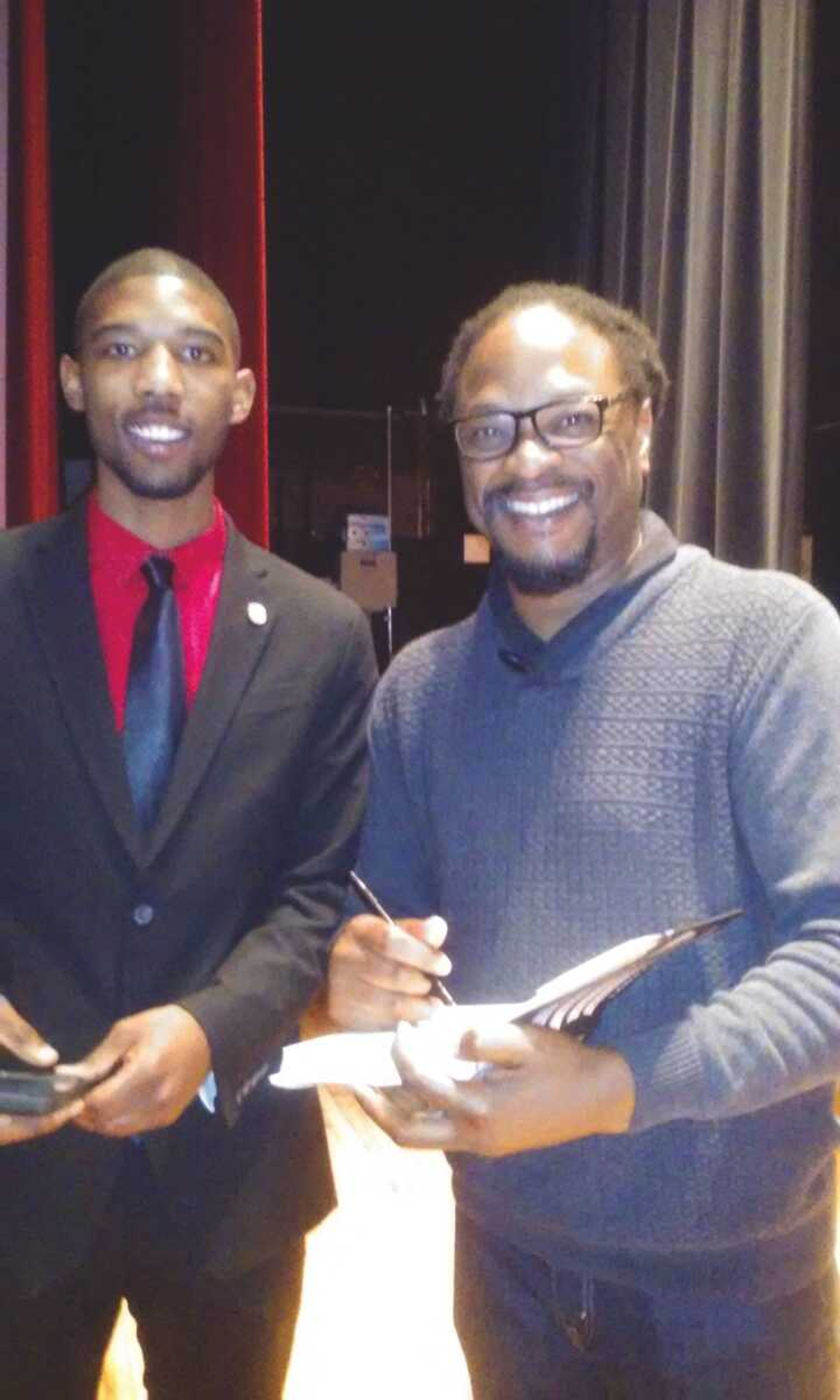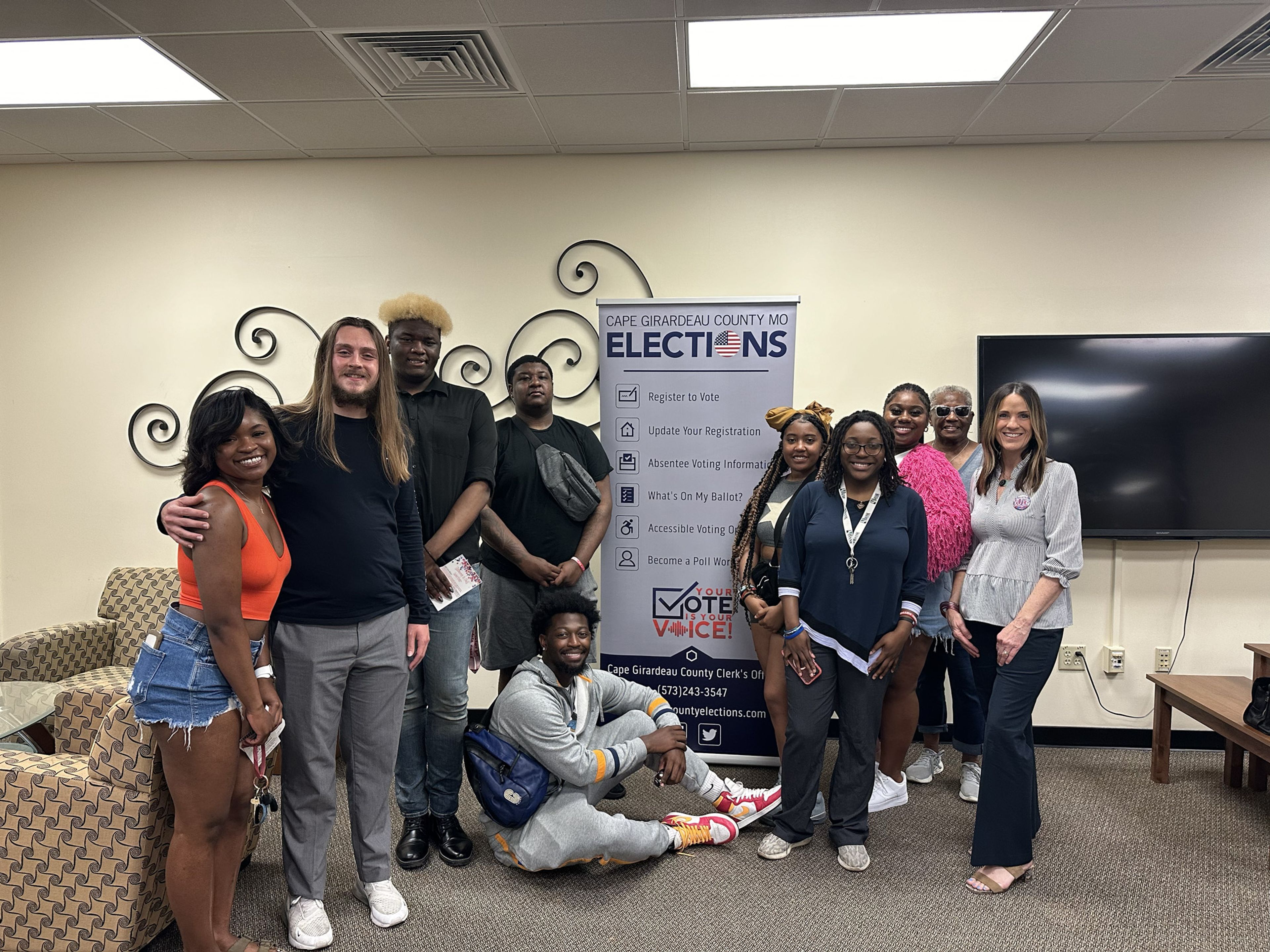At the beginning of his presentation, Lawrence Ross gave everyone a get-out-of-jail-free card.
"If anyone believes talking about racism is akin to being racist, you are free to leave," he said.
Four students did get up and leave. Ross stated that was the first time that had ever happened, and the presentation would just be over their heads.
Ross started the presentation with the chant heard around America this time last year -- "There will never be a N-word in SAE." The Sigma Alpha Epsilon fraternity at the University of Oklahoma released a video in 2015 showing members on a bus singing these racist lyrics. Ross went in depth on the events leading up to the video.
He posed the following questions Americans ask themselves when these instances occur: Is it an isolated instance? Is it strategic racism we ignore on a regular basis and we think are isolated instances? And is this what we think campus racism is?
Ross was on campus to inform students about the presence of racism in college and talk about his new book, "Blackballed: The Black and White Politics of Race on America's Campuses," and how this book came about. After his lectures, more and more students of color would tell him they did not feel connected to their college by either faculty, administration or other students. They would talk about the issues they had to deal with when it came to race or overt racism. With some investigation, Ross realized how people of color deal with racism on college campuses by creating a formula he called "Three -izes equals a miss" -- individualize the situation, minimize the situation and trivialize when the situation is lessened.
The conversation continued when Ross started the Q&A segment. Robert Turner of Diversity Peer Educators at Southeast suggested he knew people had an opinion, and they need to get up and talk.
Amy McEvoy of Alpha Xi Delta said she did not choose to be white or blonde, but she hears jokes that stereotype her all the time anyway. Ross said when she is telling you about her experience, she is telling you a deeper experience about who and what she is. Then he rounded it back to being exactly what "Blackballed" is talking about.
The purpose of Ross' presentation was to show that race is a man-made construct. Sociologically, race is an expansive subject.
"One of the foundations of the United States is white supremacy, which is a pseudoscience designed to allow Europeans to export non-Europeans by stripping non-Europeans of their humanity," Ross said. "Blacks and non-whites are always the other outsider."
Ross quoted two great presidents, Thomas Jefferson and Abraham Lincoln, to broaden one's understanding of white supremacy in America. Thomas Jefferson's quote showed how he viewed people of color as "inferior to the whites in the endowments both of body and mind." Abraham Lincoln had said, "There is a physical difference between the white and black races, which I believe will forever forbid the two races from living together."
"Society has an inequity on it based upon race," Ross said. "Society was built to bend benefits towards whiteness and away from those who are non-white. So all of this is basically designed to say to us that you do not belong on campus as a student of color."
Ross did not come to campus to sugar coat the racism on college campuses. He said he wanted to educate those who were not aware of the different forms of discrimination people of color go through. Ross' examples led to the understanding of how people of color can communicate with others.





